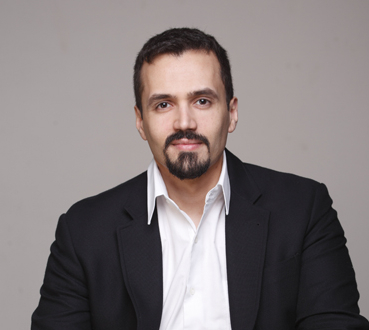
For months, from these pages and elsewhere, I have written a rather large number of articles criticising the conduct and performance of Egypt’s post-uprising political forces. The Supreme Council of the Armed Forces (SCAF), which resumed power after Hosni Mubarak, gave a good deal of material for me to work with. I knew at the time that most Egyptians had confidence in SCAF; much was borne out in the opinion polls that showed that around 90% of Egyptians expressed confidence in the military and its leadership. I thought that confidence was ill-placed, and that there had been many problems with the way in which the military had conducted the transition. At no point did anyone respond to my words asking “well, why do you not join the military to try to change things?” or, “why are you not creating an opposition party to the military to take over?” It would be rather peculiar to expect such a critique, to be fair. It would be interesting to see the Egyptian military accept an Englishman into their army, a century after Egyptians requested the British kindly leave.
When Mohamed Morsi won the presidential elections, something I supported in contradistinction to an Ahmed Shafiq presidency, my criticism did not abate; it increased. President Morsi is the first democratically elected president of Egypt, coming to power through a revolution that costs the lives of hundreds of Egyptians. In other words, he has a great and terrible responsibility to bear along with great expectations to live up to. I am not sure if I can continue to write about that in the present tense or not because President Morsi and his government have committed so many failures thus far. I wonder if it is even possible for them to ever be considered, despite what they do, to have succeeded in bearing that responsibility. Nevertheless, at no point did anyone respond to my work asking “well, why do you not join the government to get them to change?” Perhaps the government would have realised already that if I was put in a position of authority, instead of people talking about selling off the pyramids, they would be talking about my fabulous idea of turning the state bureaucracy over to Singapore for 10 years to sort things out. (Come on: you know it would be a great idea.)
Recently, I participated in a debate entitled “The opposition has failed the people of Egypt”. Frankly, I have not given the opposition as much attention as SCAF or the Muslim Brotherhood. The government ought not to complain about that. After all, do they not keep saying that the opposition has no weight in the country? That it is entirely unrepresentative and in a bubble? (Kind of rich coming from the Brotherhood, whose bubble is astounding in its imagination, but still…). Hence, why would I expend much effort on a movement that is not really responsible for very much? (Cue Brotherhood contradiction: the Muslim Brotherhood has no weight, but somehow is responsible for just about every problem to befall Egypt, and the failure of the Nahda project to do… umm, anything) Nevertheless, I was asked to participate, so I did, after suggesting other people in my place, and figuring that the opposition’s leadership might need a bit of shaking up a bit. I doubt they would pay much attention to me, but the point, I think, of public non-intellectuals such as myself is to at least be a pain in all politicians’ sides. Some people call that “calling power to account”; personally, I just call it being gheles (you can ask your Egyptian friends to explain this really wonderful word, which sums me up completely).
Let’s be clear here: there is no shortage of evidence to show that the Egyptian opposition has failed. At every step of the way, the Egyptian ruling party has given umpteen chances to be shown up in public discourse, nationally and internationally. I humbly submit that Bassem Youssef’s political satire show in one evening does more to call the ruling party to account, than the opposition leadership does in a month. Note to opposition: you could have ridden Bassem’s media extravaganza worldwide to awesome effect with barely any effort, if you had jumped in as the defenders of freedom of speech and criticism. It would have cost you… umm, nothing. At all. Zilch. Like, less than the $2200 that Bassem had to pay for bail. (Thanks again, Egyptian government, for making Bassem more famous than he could ever have been without your tremendously thoughtful free publicity. How much you are going to regret this in just a week… watch this space). When the attacks took place against the Coptic Cathedral last week, it took the opposition leadership 36 hours to issue a statement. Thirty. Six. Hours. The list goes on and on, and frankly, a whole article could be written as bullet points in that regard.
What was different about that criticism, however, was a portion of the responses I received from supporters of the opposition, who insisted that rather than criticise, I ought to join the opposition, or provide an alternative. Criticism, it seemed, was good when aimed at Islamists and the military – but if I was not willing to join the opposition, or create an alternative opposition, I shouldn’t criticise it.
It was an interesting critique, but a flawed one. The opposition seeks to rule, and hence, they are obliged to say what they would do if they were in charge, so as to convince voters to vote for them. I thought about running once for office in the UK. The resulting near-coronary from anyone who met me for more than ten minutes was enough to change my mind. While I have something of a sadistic streak that would enjoy bringing down the level of Egyptian politics even further (is that possible?). I do think Egypt deserves a lot better. As a result, I have absolutely no intention for running in any public office, which may rob me of the opportunity to ruin this country, but oh well; but this means I am under no obligation to convince anyone I’d be better than either the government in government, or the opposition in opposition.
When Egypt has a good government, it needs a good opposition. When it has an awful government, as it does today, it needs a much, better opposition, and this opposition’s leadership has let down the people. What’s more, they know it; if they don’t, they do deserve to be out of power. The good news, though: inside this opposition, there are many great and wonderful people who, if given the chance, can make Egypt proud of its political class. At the moment, there’s more to be proud of in shisha cafés, even the lousiest of them. Until that opposition shapes up, I’m not only going to continue critiquing it, I’m going to be more critical if they get better and more effective. There’s a phrase for that: it’s “calling power to account”. That’s an important part of this thing people call “good governance”. Get used to it.

